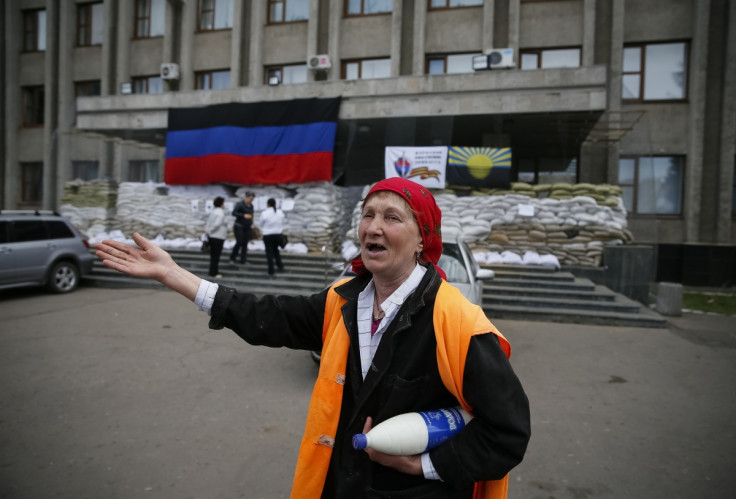Russia Credit Rating Cut: What it Means and Who it Affects

Standard and Poor's slashed Russia's sovereign debt credit rating. The ratings agency slapped Russia with the lowest investment grade rating, BBB-, just one step above junk.
That's a lot of gloomy sounding financial jargon, but there's an intriguing story behind the move, its implications for the Russian economy and those who are exposed to its fitness.
What that actually means is that debt sold by the Russian government has become riskier as a result of geopolitical uncertainty surrounding it and Ukraine. Russian government debt has been stamped as less (or more) attractive to investors, depending on your appetite for risk.
S&P is the oldest of the established ratings agencies. Their job is to assess the riskiness of investing in financial products and they decided that Russian debt is less safe than it was before.
That's because Russian President Vladimir Putin is showing no signs of backing down from the most dangerous confrontation with the West since the end of the Cold War and the collapse of the Soviet Union in the early 90s.
The United States has warned it will impose tougher sanctions that could target broad sectors of Russia's economy if Moscow does not uphold its end of the bargain struck in Geneva last week.
Each day that passes without pro-Russian forces disarming and withdrawing from public buildings in Ukraine's east, the likelihood of American sanctions increases. While analysts doubt the US President Barack Obama will approve measures before returning from a four-nation tour of East Asia, they expect Washington to act shortly after his return on April 28.
US officials have hinted that the economic sanctions will target individuals with ties to the Kremlin and could affect sectors of Russia's economy including mining, financial services and the energy sector.
All of that is behind S&P's decision to downgrade Russia's debt. However, the impact of the downgrade is extremely difficult to predict.
Investors often ignore the ratings companies. According to research carried out by Bloomberg, the yield (or, profitability) on government bonds heads in the opposite direction to the one implied by the ratings agencies' decisions.
As an example, take the S&P downgrade of US government debt in 2011. The bond prices rose and left the yield at historic lows.
The Russian government responded to Friday's cut with a typical shrug of the shoulders. Economy Minister Alexei Ulyukayev told reporters that investors had expected the cut and it will not have a significant impact on their appetite for Russian government bonds. Indeed, it's fair to say that a cut was on the cards and most worried investors have already withdrawn from Russia.
With swagger befitting a man revelling in his new found place at the centre of global politics, Putin insisted on Thursday that "sanctions are not effective in the contemporary world and are not bringing the desired outcome."
However, the last round of sanctions imposed by the West suggest otherwise. In the wake of Russia's annexation of Crimea, investors retreated from Russia at an increased pace.
Capital flight from Russia (investors withdrawing their cash) reached $50.6bn in the first quarter alone, creeping towards the $63bn figure for the whole of 2013. The World Bank predicts that the number could reach $150bn by the end of the year, while the Russian government has warned that the economy may enter a recession this year.
The biggest impact of the cut was immediately seen in the value of the Russian rouble, which fell 0.6% after the announcement. This could be a long-term decline, as investors look for a currency used by countries with healthier prospects for growth.
A falling rouble would not harm Russia's energy exports, which are sold in dollars, but it will also make imports more expensive for Russian customers. Indeed Russia relies on imports of food, machinery, pharmaceuticals, textiles and plastics. If the import prices rise enough, that could lead to domestic problems for Putin.
Other than that, the ratings cut doesn't really create any more danger for Russia. On the whole, S&P's cut is a reaction to recent market sentiment. Investors' real-time opinions and decisions are being driven by the likelihood and depth of sanctions against Moscow.
And with Barack Obama having "teed up" tough penalties against Russia, investors will be watching the US President closely as they make their next move.
© Copyright IBTimes 2025. All rights reserved.






















